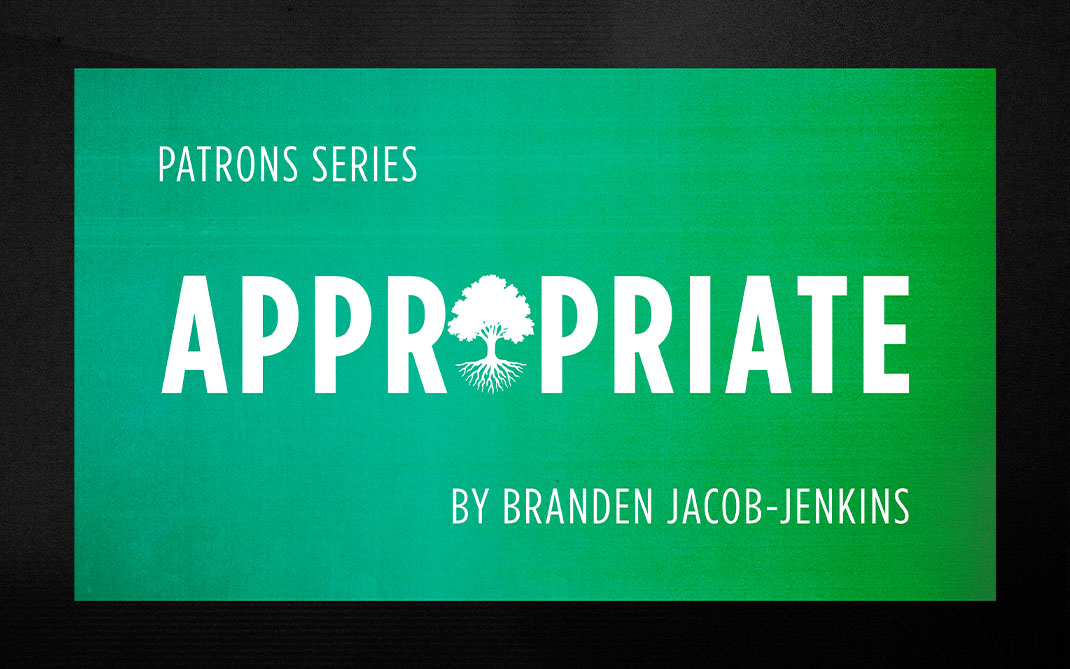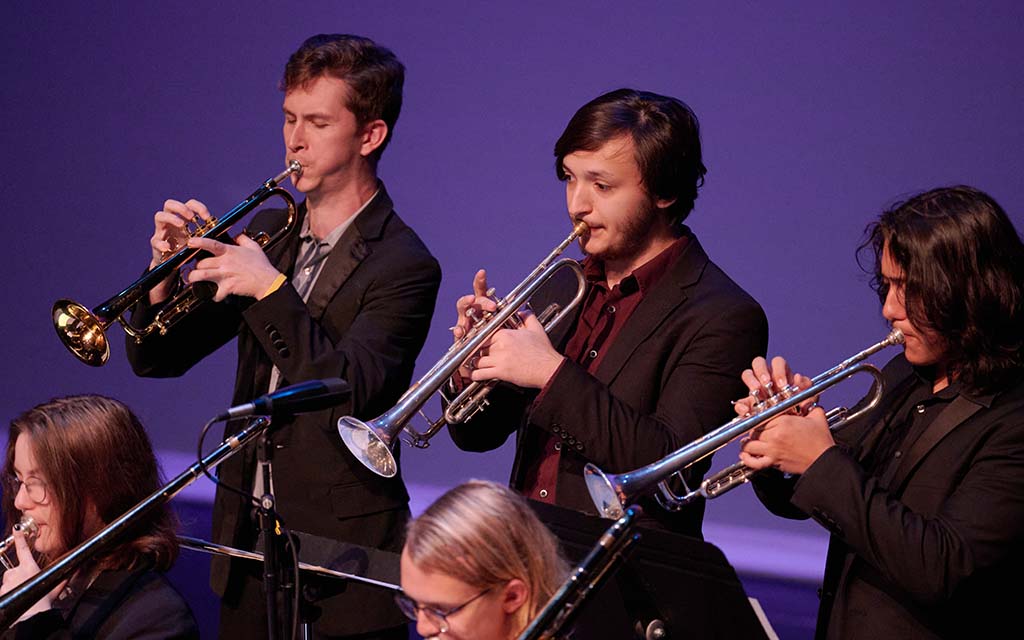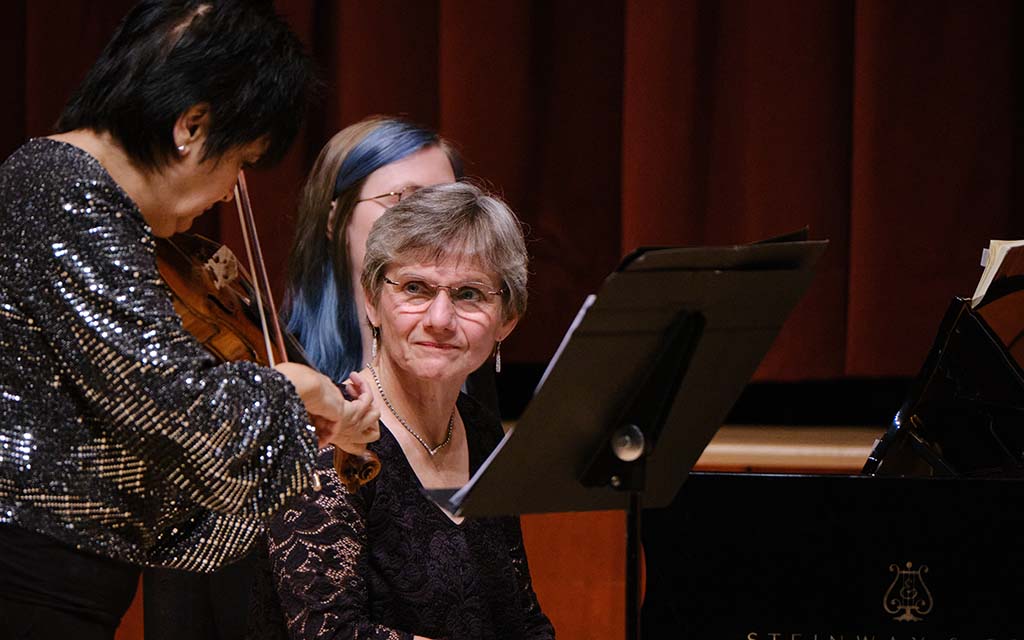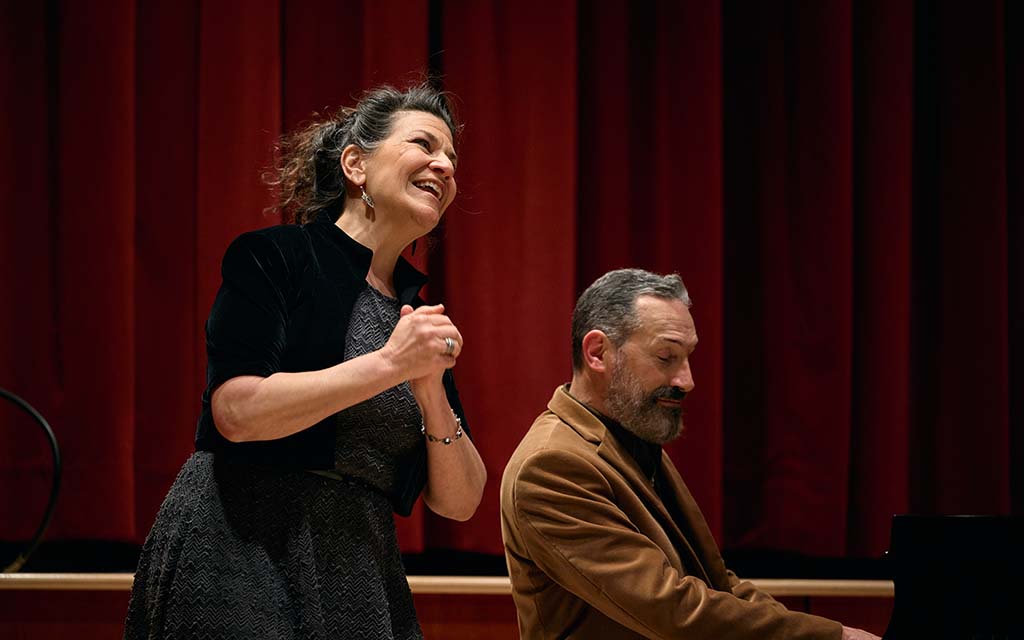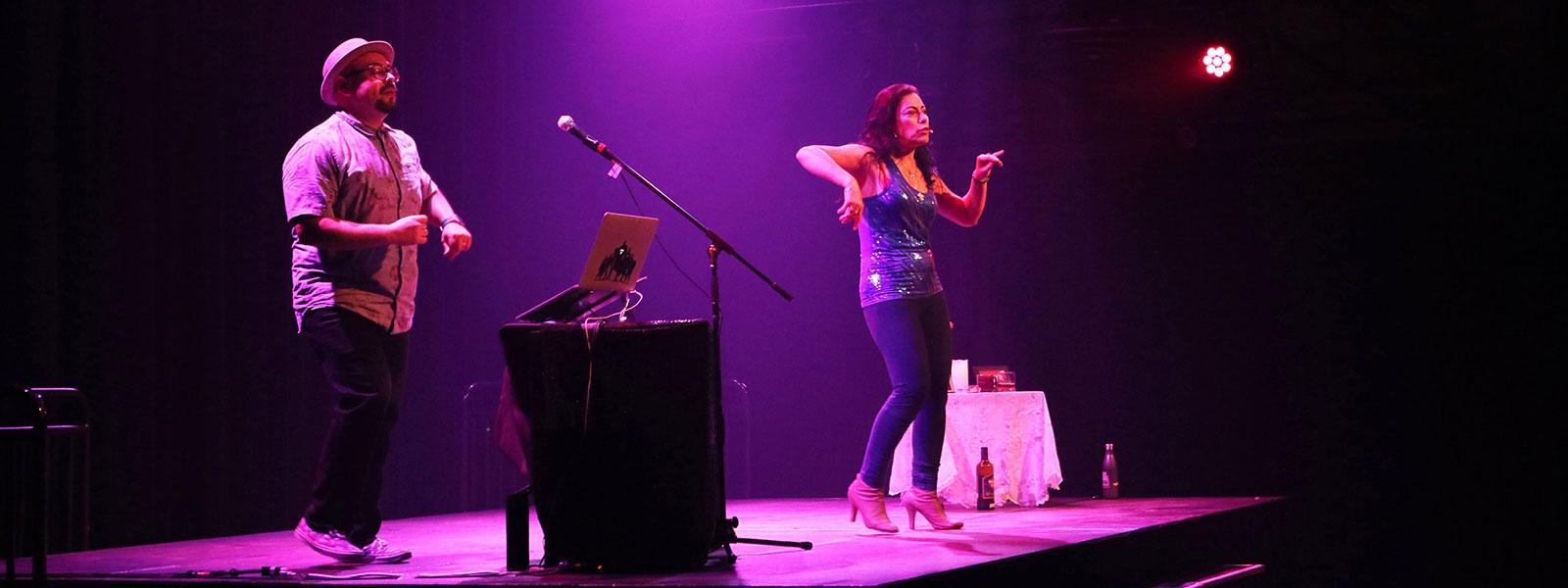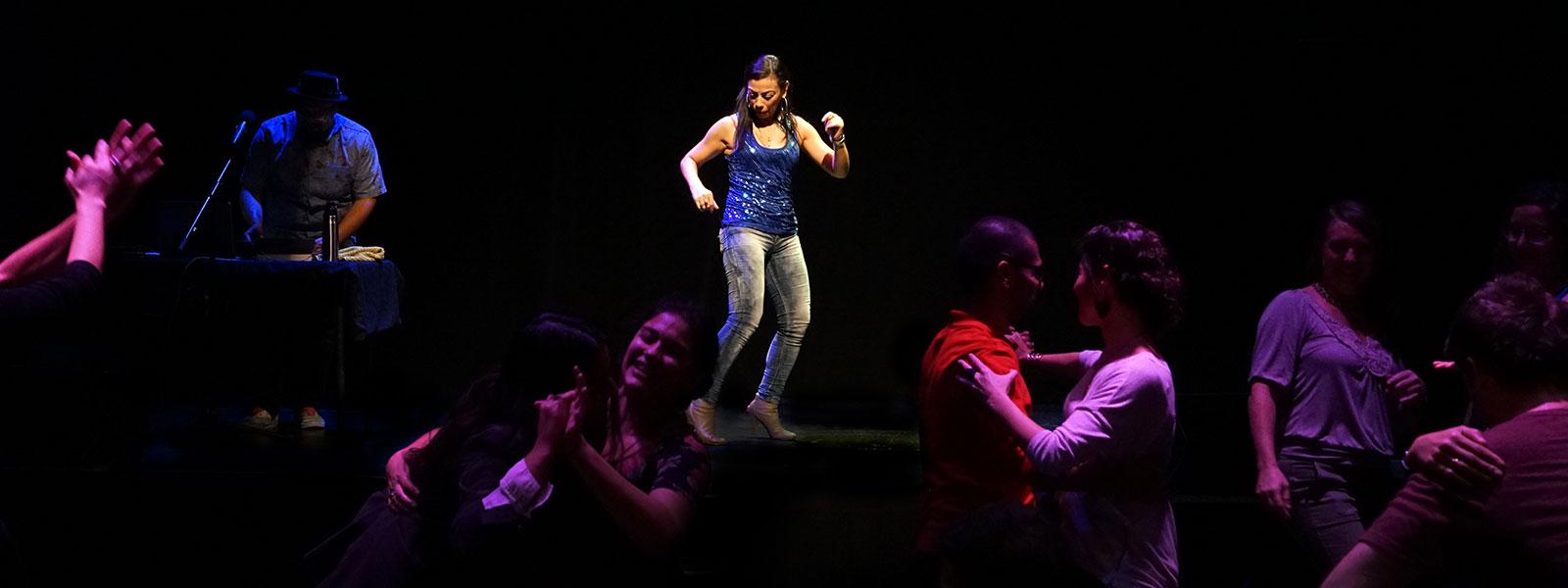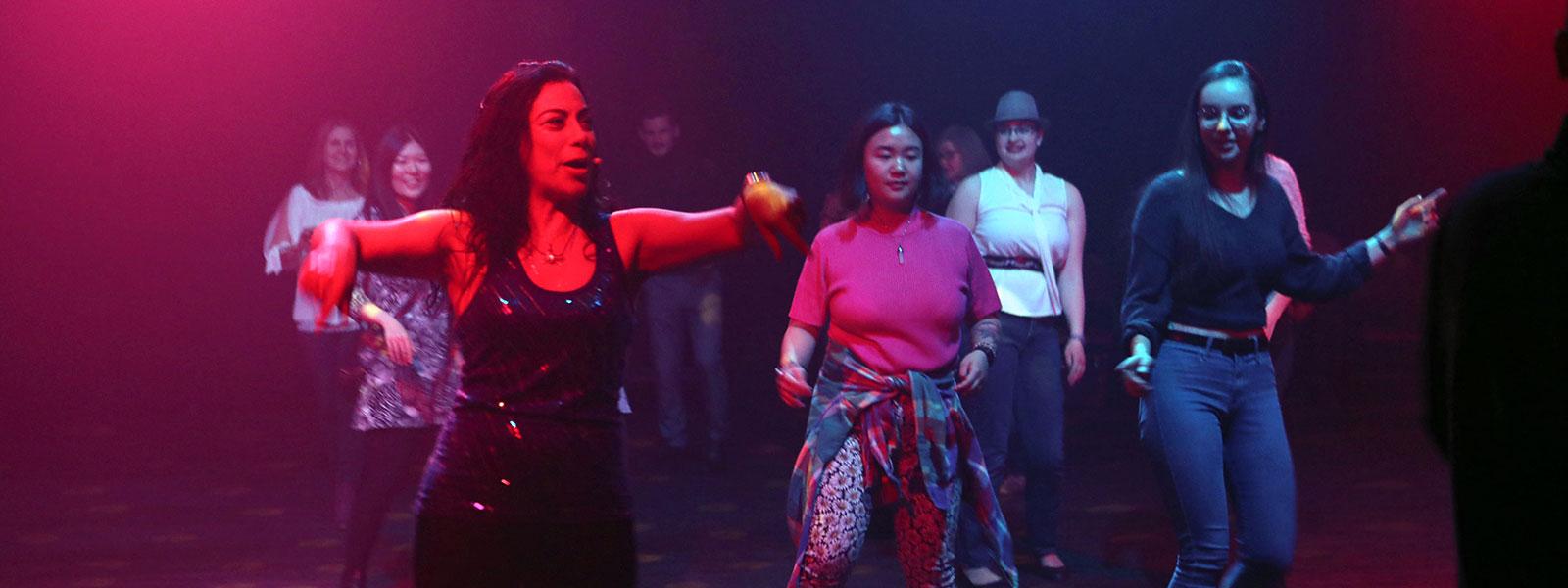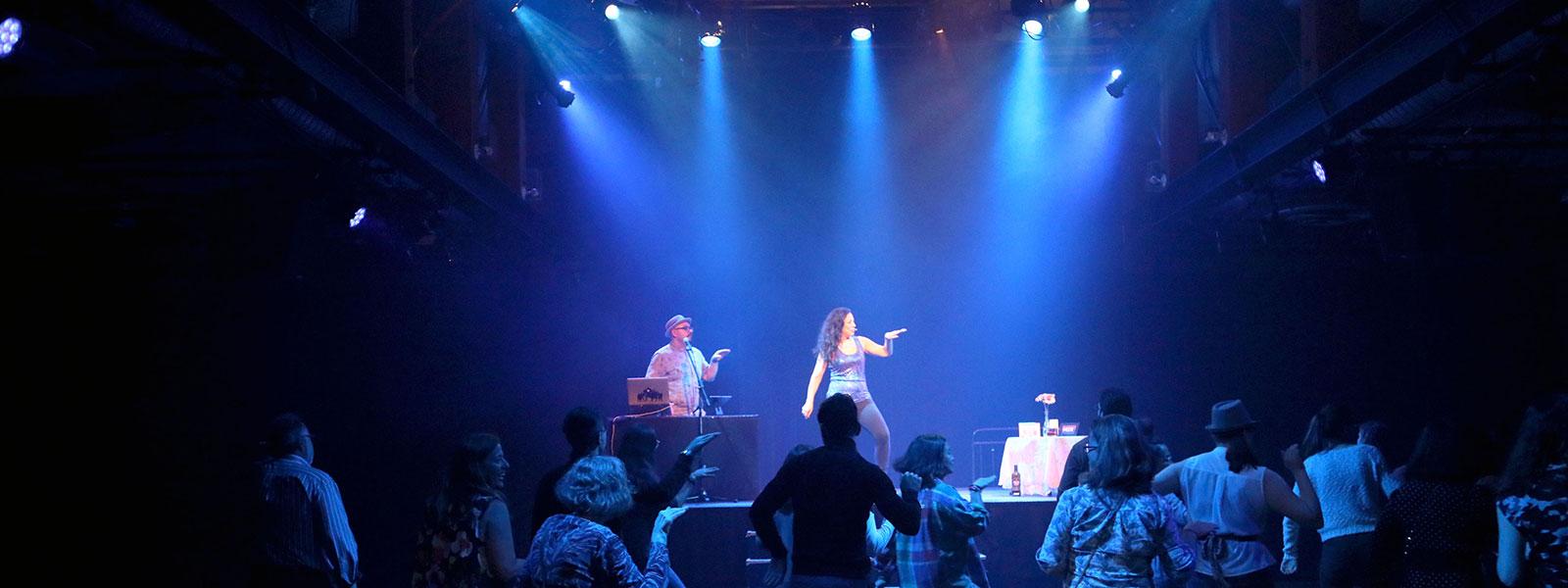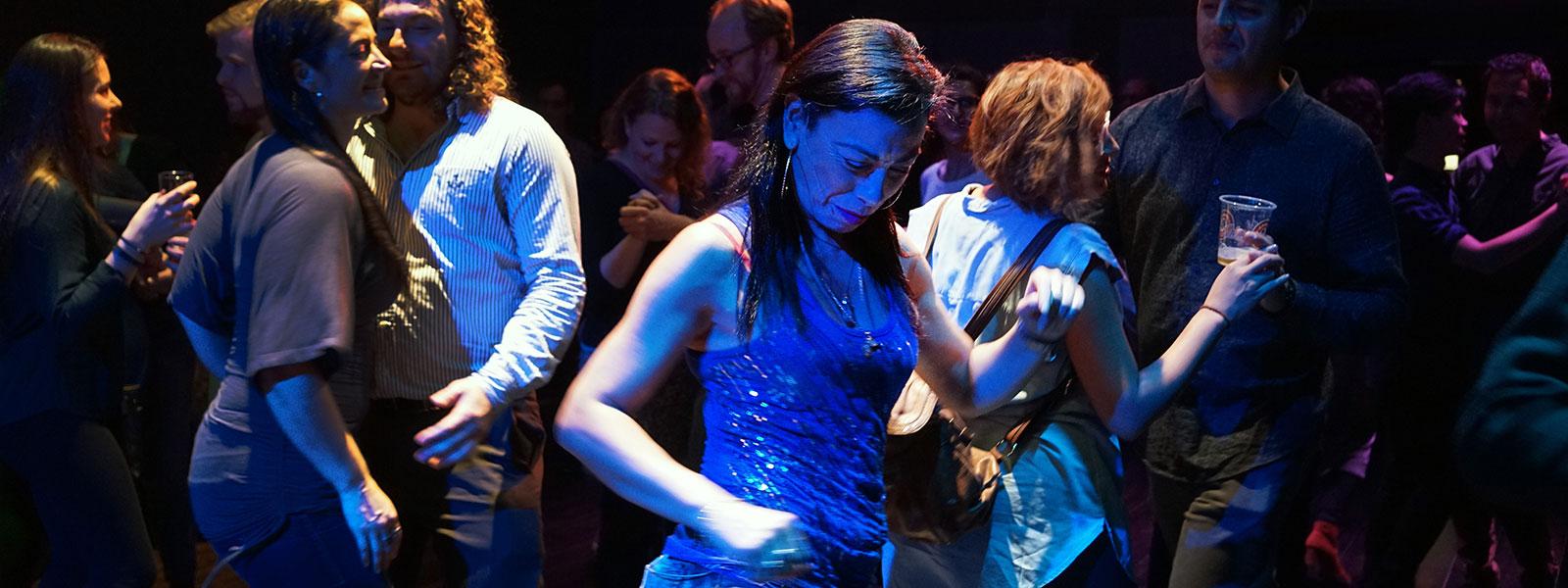Artist As Leader: Carmen Aguirre
Carmen Aguirre is one of Canada’s most acclaimed authors. Her plays, several of which draw on her experience as a political refugee from — and resistance fighter against — the Chilean dictatorship of the ’70s and ’80s, have been produced all over North America. In a post-pandemic world, she will resume touring her latest, “Broken Tailbone,” a piece with live DJ in which Carmen herself reveals the cultural, political and very personal importance of Latinx dance halls and music by literally leading the audience through salsa lessons.
Her first memoir, “Something Fierce: Memoirs of a Revolutionary Daughter,” became a #1 bestseller in Canada, won Canada Reads in 2012 and has been translated into several languages. Four years later her book “Mexican Hooker #1 and My Other Roles Since the Revolution” was named a best book of 2016 by the National Post and CBC and was likewise a bestseller.
Carmen is also an accomplished, award-winning actor, having appeared on stages throughout Canada and with several film and television credits to her name. The founder of the Latino Theatre Group in 1994 and more recently a co-founder of the Canadian Latinx Theatre Artist Coalition, she is now a Core Artist at Vancouver’s Electric Company Theatre.
In this interview with Pier Carlo Talenti, Carmen muses about how her experiences with danger — as a resistance fighter, a refugee, a Latina and an artist — have informed the way she leads.
Choose a question below to begin exploring the interview:
- When did you start becoming the artist that you are today?
- Did you write and perform equally through your artistic career?
- From the ages of 18 to 22, when you were trained as a resistance fighter and were active as a resistance fighter, was there anything you learned in those years that has been useful to you as an artist leading?
- When did you realize that you were a leader?
- What’s amazing, though, is that it was not difficult for you to get followership … What is it in you that’s able to do that?
- If you could wave a magic wand and change three practices or habits or beliefs of current art leaders, what would those changes be?
- How are you [being a facilitator] these days?
- What challenges is [leading in an institutional capacity] bringing to you that you haven’t faced before?
- What advice would have been useful to you as you were emerging as an artist leader?
- You were a fighter and continue to be a fighter, and certainly these days it feels like we’re at war — against a virus, against toxic historical injustices, against those in power. What role do you want to see artists take in leading us through these times?
- Epilogue
Pier Carlo Talenti: When did you start becoming the artist that you are today?
Carmen Aguirre: This might sound a little bit farfetched, but I think it was when I was around three years old. [She laughs.] I was born in Chile. I was living in Chile, and I remember going to the circus for the first time in Patagonia, which is where we were living. I must have been about three years old, no word of a lie. It’s one of my first memories ever because it’s imprinted in my retina. I just knew, watching the circus, that that’s what I was going to do.
Watching the circus, I found it very scary and exciting. I was later able to pinpoint that it was because these artists that I was watching were taking a huge risk.
I didn’t understand yet what theater was or anything like that, but I got that I wanted to do stuff like that in front of people, what the circus people were doing. I was like, “Oh, there’s an audience. OK, I get it.” Watching the circus, I found it very scary and exciting. I was later able to pinpoint that it was because these artists that I was watching were taking a huge risk.
The biggest image that’s seared in my brain from that time is a woman in a bikini standing on a white horse that was riding around in circles and she wasn’t falling off. She was risking her life basically to provide that image for us.
Then later on — I must have been about four or five — during the Allende socialist government in Chile, my parents were very, very supportive of the socialist government, and my mother joined a theater troupe. It was like an agitprop theater group. Her job with this theater troupe — she was very young; she was about 23 or 24 years old at this time — was to go around the countryside and teach rural communities through theater about what the socialist government was doing vis-à-vis the agrarian reform and the literacy campaign.
I never got to go, which upset me very much. I was four or five years old, and I was always left behind. The image that I have of that is of this VW van pulling up in front of the house and the door opening and these really cool people being inside the van — basically they were hippies — strumming guitars and … just very fun people. And her diving into this van and taking off. And my father explaining that she was going to “do theater.” And so I was like, “Oh, well, that’s what I have to do, obviously!” [Laughs]
Then later we were exiled. We were expelled from the country after the right-wing coup of Pinochet in 1973, and after a circuitous route we ended up in Canada. I guess at around eight years old, I started “writing and directing and producing” my own plays at all the Chilean gatherings. Basically I would just gather all the kids for the whole night, and we’d work on a play. And at the end of the night, we’d put on the play. Basically it was one play, which was “Revolutionary Cinderella.” [She laughs.] It was about how Cinderella is being exploited and how she takes up arms and creates a revolution with all the people like her and takes the power.
I had all these different versions of it. I had the regular “somebody plays Cinderella, and somebody plays a stepmother” and dah-dah-dah. In “Revolutionary Cinderella,” Che Guevara comes into the story and recruits her and all that. And then I had the noir version and gender-reversed version, where Cinderella is played by a boy and Che Guevara —
Pier Carlo: And how old were you when you were producing?
Carmen: Eight. Yeah, eight, nine, ten. Then I had the one-man-show “Cinderella,” which was my boy cousin just playing every single role.
Of course, I was very, very lucky that I grew up in Vancouver, where I went to elementary school. Our catchment happened to be this elementary school that was on the cutting edge of … it was an alternative school basically. In the 1970s. So you can only imagine, right? An alternative school in the 1970s in Canada. It was hippie central, which was the best.
My best friend Dewi and I, the teachers would give us every afternoon to write and direct and perform in a play. It had to be a five-minute play, and at 5 minutes to 3, we could present it to our entire class. Because they knew that we wanted to be theater people; they understood that. I basically spent most of my elementary school life from 2 until 2:55 on my feet with Dewi, coming up with these two-handers that we would then present at 5 to 3.
Through my teenage life, I lived in South America, in Bolivia and in Argentina, and I joined theater troupes there. Then when I was 18 — it’s a very long story — I joined the Chilean resistance against the Pinochet dictatorship, and I left behind my artistic life and my artistic self. I was consumed by that cause, which was the only way to be a part of that cause. It didn’t make sense to not be that way. But we lost the cause by the time I was 22, and I was young enough to pursue this calling again.
I ended up coming back to Canada and auditioning for the top classical-theater training program in Western Canada, which I knew was very difficult to get into, but I just willed my myself to get into it. And I did. I mean, it was super difficult to get into. They audition 300 people from across Canada for every semester. They accept a total of 16, and only about four graduate. It’s a very tough program. I hung on by my teeth, and I was able to graduate.
That was 30 years ago when I started that program.
Pier Carlo: Did you write and perform equally through your artistic career?
Carmen: What happened was when I went to school — it’s a Shakespearean acting program — I had no clue that I was a person of color. I mean, of course, I knew I was a person of color, but I was under the false impression — very young, right? — that the theater world was some utopia that somehow lived outside of society and therefore was not part of systemic racism or systemic sexism.
Within six weeks of starting there, I was pulled aside by the faculty and told that I would basically never get any work because of the racism in the theater. ... This whole dream that I had, that I was just going to be this Shakespearean actor working all over, went out the window, and I started to write my own work in theater school.
I was one of three people of color in the entire program, and of course the entire faculty was white and I was the only Latina in the program. Within six weeks of starting there, I was pulled aside by the faculty and told that I would basically never get any work because of the racism in the theater. They wanted to make sure that I knew what I was getting into. They referred to me as a person of color, and I was in a state of shock. I’m like, “Oh, my God, they can see that I’m a person of color. Shit!” [She laughs.] This whole dream that I had, that I was just going to be this Shakespearean actor working all over, went out the window, and I started to write my own work in theater school.
There were two interesting things that were going on for me at theater school, aside from the systemic racism, which was of course very difficult to deal with. There was one group of people that I looked forward to seeing every day more than anybody else at theater school, and those were the janitors. The janitors were a Guatemalan refugee family. They are the people that I just loved. They are what made me get up in the morning and go to school, the people that actually scrubbed the floors that we did Shakespeare on. It started to become very clear to me that those are the stories that I wanted to tell, the stories of my Latin American community in Vancouver.
At that time in the early ’90s, the Latin American demographic in Canada was the poorest demographic in Canada. It was made up almost entirely of political refugees fleeing, at that time, Central America. I grew up as a janitor. When we arrived in Canada, my parents, who were both academics, both of their degrees were considered null, and so we were janitors for 10 years. So I spent my after-school time in elementary school and on my weekends going to do the janitor work with my parents. Which was super fun, by the way, because it was basically about a dozen Chilean families, and we would do all the janitor work together. It was one big party for us kids. We would have our chores that we had to do. It was fun.
But I just realized in theater school that those are the stories that were not being told on Canadian stages, and those were the stories that I wanted to tell.
At the beginning of the 1990s, there was a big phenomenon going on in Canadian culture, as it were, which was that in the late ’80s, the federal government passed this act called the Multiculturalism Act that basically recognized that different cultures in Canada could express their cultural selves in public. The way that that affected the theater is that there were plays being written in the early ’90s about the immigrant experience, culturally specific plays about the immigrant experience.
But they all pretty much did the same thing, no matter how well-written they were or how entertaining they were: They pretty much all performed gratitude to mainstream Canada for “letting us in” and presented the homeland as backward and laughable and stuck in time. I knew that I wanted to tell stories of the Latin American refugee community that pretty much did the opposite, that really honored Latin America and did not perform gratitude to mainstream Canada for “letting us in” and did not present Canada as the best country on Earth or superior to every other country on Earth, which Canada believes it is. Canada really believes that, which is embarrassing. These plays at the beginning of the ’90s, tied in with the Multiculturalism Act, were doing that.
Anyway, it was in theater school that I realized that I had to write my own work, and my theater school was very supportive of that. They provided me with a lot of playwriting training. Part of the theater school training, no matter who you were, was that you did have to take a playwriting class and you did have to end up writing a play by the time you finished theater school, not so that you would be a playwright but so that as an actor you would really appreciate what it takes to write a play. That playwriting teacher was given to me one-on-one. When the faculty realized that I wanted to also write, they were like, “Well, here’s this playwriting teacher. You can have him just to yourself.”
And I was sent out. In my final semester, I was sent out to an organization here in Vancouver called the New Play Centre, which is now called the Playwrights Theatre Centre. They had a new play festival every year. I was sent out for six weeks to just be there and be the shadow of the artistic director of that festival. He would just send me to every workshop so I could be present for all the development that was going on.
My theater school ended up producing my very first play in 1995. They were very, very supportive. When they pulled me aside to talk to me about the systemic racism and really urge me to do something else with my life, it was a test. They were really preparing me for something, and once they realized that I understood what I was getting into, they offered all the support they could.
Pier Carlo: From the ages of 18 to 22, when you were trained as a resistance fighter and were active as a resistance fighter, was there anything you learned in those years that has been useful to you as an artist leading?
It’s never about you. It can’t be about you; it has to be about the work. In the case of the resistance, it was about the cause, right? In the case of the art, it’s about the work.
Carmen: Yes. One of the most important things that I learned is you never, ever, ever take yourself seriously. You always take the work seriously. The first is disastrous, and the second is imperative. It’s never about you. It can’t be about you; it has to be about the work. In the case of the resistance, it was about the cause, right? In the case of the art, it’s about the work. The sooner you can get your ego out of the room and have a really wide vision that doesn’t include you, then the better.
Listening is a key quality, I think, in order to be a leader, to really have the capacity to listen, to have the confidence to make decisions once the listening part is done and be willing to take huge risks. Be willing to fail and to take responsibility for the work and for the failure and to be accountable. You have to be willing to be accountable.
Pier Carlo: When did you realize that you were a leader?
Carmen: I guess when I was eight. [She laughs.]
Pier Carlo: “Cinderella?”
Carmen: When I would grab all the kids at the Chilean gatherings and take them to the nearest bedroom or the nearest parking lot, depending on where we were. And “OK, you’re Cinderella, you’re the stepmother, you’re Che Guevara, you stand there, you say this, you say that.”
Pier Carlo: What’s amazing, though, is that it was not difficult for you to get followership, to get a cast of kids and presumably occasionally an audience of adults. What is it in you that’s able to do that, that was be able to do that even at eight?
Carmen: I guess it just never crossed my mind that people would say no to me. It was just given to me. I’ve always been told that I’m terrifying, which is very funny to me because I have no clue what people are talking about. For example, again, when I was eight at my elementary school, my best friend Dewi, she and I would do the plays. Her older sister was always being bullied. Her older sister was a nerd, like I’m talking a quintessential, archetypical nerd. She was brilliant. I mean, if I showed you a picture of her at that age, you’d just want to cast her as the biggest nerd ever. So she was always being bullied.
I remember we were in grade four, I guess, me and Dewi, and her sister was in grade six or seven. So she was quite a bit older than us, right? She was a senior in elementary school. At recess and on lunch break, she would come running up to me and be like, “Carmen, Carmen, just go up to those grade seven boys and give them the evil eye and tell them off.” It was basically all these white boys who were 12, and I was eight or nine. They were the rich boys. They were the future frat boys, terrifying boys, right?
I remember going around the corner — it was always the same — I would go around the corner, like this side wall of the school, and they’d all be standing there where they had just been bullying her. I would go up to them and I would push them against the wall, and they would let me. They would actually let me. I would push them against the wall and yell out, “Fucker!” [Howls with laughter] And they would run away from me, which was hilarious. I mean, I had pigtails! It was very strange to me that they were afraid of me.
But the point is that people have always been afraid of me. I guess I have a scary face. I have no clue.
Pier Carlo: Well, maybe it’s because you’ll get up in their face and yell, “Fucker.” That’ll do it, pigtails or no pigtails.
Carmen: [She laughs.] Yeah. So I guess because I came across as fearless, which is not true — I feel as much fear as anybody else — but I guess because I came across as fearless and I continue to come across that way, people will take direction from me.
Pier Carlo: In your career, I know you’ve had run-ins with established arts leaders whose leadership you’ve openly questioned.
If you could wave a magic wand and change three practices or habits or beliefs of current art leaders, what would those changes be? What would you like to see changed?
Just because you’re a leader, it doesn’t mean you’re qualified to have every conversation about every topic. I think that’s where the listening thing comes in. You have to be aware.
Carmen: Well, one of the things is that just because you’re a leader, it doesn’t mean you’re qualified to have every conversation about every topic. I think that’s where the listening thing comes in. You have to be aware.
Let’s say I’m a leader. I’m not going to have a conversation about gender identity as a — I don’t know what the current wording is — as a cis straight woman. I am not qualified to have that conversation. So I’m going to shut up. I’m going to bring in people who are qualified to have that conversation, and I’m going to listen to them. And I’m going to ask questions, no matter how dumb they are. I don’t really care what people think of me, so I’m willing to ask dumb questions.
What’s happening now, I think, is mostly white men leaders in the arts seem to think they’re qualified to have the conversation about systemic racism. And they’re not. They need to step aside and actually listen to the people who are qualified to have that conversation. They’re just puzzled that they’re not qualified for it, because they think they are.
What’s very interesting to me are the conversations that I’ve been having around systemic racism in the theater in Canada with many people — who are not all white, by the way — who actually don’t know what systemic racism is. That is to say they believe that a brown person or a Black person can be racist towards a white person, which tells me that they don’t actually know what the term racism is or how it began or that it is actually about white supremacy, that it is an ideology that was started in the 17th century in order to justify slavery. “Let’s create the white race.” It’s an actual construct. I realized that many people don’t know that, don’t even know that history. Therefore they actually believe that a Black person can be “racist” towards a white person.
I guess that’s what I mean, that you as a leader need to understand that in a way you’re a facilitator and you’re not qualified to have many, many conversations. And you need to know what those are. I’m qualified to have a conversation about sexism because I’m a woman, right? Also I was raised by a feminist, a hardcore feminist. I was raised in a feminist household. But like I said earlier I am not qualified to have any conversation about gender identity.
I guess also being a leader for me means being a facilitator.
Pier Carlo: And how are you doing that these days?
Carmen: One thing I’m trying to do is to not comment on social media. I find social media to be really destructive these days. In the rest of the world probably but certainly the rest of Canada and the United States, after the George Floyd murder, that sparked a massive conversation about systemic racism in the theater in Canada. In our company none of us are Black, so I was like, “We can’t say a fucking word here. We just have to listen and provide whatever resources we have if people need them.” That’s what we’ve been trying to do, providing our literal space if people want to gather, providing technology if people need it in order to have cross-continental meetings, providing some funding.
One of the things that we very purposefully did was not make a public statement saying that we support Black Lives Matter because we felt that that would have been insincere and dishonest because none of us in the company is Black and we’ve never done any Black work. So it would have come across as quite opportunistic and just fail.
Pier Carlo: How old is the company?
Carmen: The company has been around for 25 years. It was an all-white company until two years ago when they brought me on. The company is very aware of its own whiteness, let’s put it that way, and has really taken that on as something that has to be changed, like, yesterday.
The play that we did this year, which was the world premiere of my play “Anywhere but Here,” had a 100% BIPOC team. That includes the playwright, the director, the designers, the actors, everybody. The next thing that we’re doing will be, I think, 80% BIPOC. So it would have come across as completely opportunistic and fake for a company that has historically been so white to all of a sudden make a public statement that we believe Black Lives Matter.
We just very quietly never ever told a soul, started to provide resources to queer Black artists in Vancouver if they needed them. We just haven’t told anybody, because again we don’t want it to come across as performative ally-ship or virtue-signaling.
Pier Carlo: You said you’re one of four core artists. Are you basically a co-artistic director in the company?
Carmen: Yeah. We call ourselves core artists, but basically, it’s four co-artistic directors.
Pier Carlo: Is this the first time you’re leading in that institutional capacity?
Carmen: Yes.
Pier Carlo: So what challenges is that bringing to you that you haven’t faced before?
Carmen: First of all, I’m learning so much, because of course there’s a general manager, there’s marketing, there’s all kinds of stuff, whereas in the past, I’ve kind of self-produced or other companies have produced my work and I just show up and do the work. So I’m learning a great deal.
I tend to not care what people think about me at all. I’m not just saying that; I really don’t care. So I know that that has been a bit of a strain on the company. [She laughs.]
Pier Carlo: Why?
Carmen: Well, because I’ll just say things publicly, and they’re like, “Um, well, you’re representing us now.” But then they very quickly, “But you know what, one of the reasons we asked Carmen to join us is because she’s like that. So let’s just let her keep doing that.”
Pier Carlo: If you could go back to time in your life when advice might have been useful — not eight years old. Let’s go a little bit later in your artistic life, because I don’t think your eight-year-old self would have taken any advice anyway — what advice would have been useful to you as you were emerging as an artist leader?
Carmen: So much advice would have been useful to me. I’ve made so many mistakes.
I was running a company, a Theater of the Oppressed company, for eight years from the time I was, I guess, about 26 till I was about 34.
Pier Carlo: This was in Canada?
Carmen: In Vancouver, yeah. It was just me doing it. Basically, it was for the Latinx community, and it was very specifically for non-actors — because I’ve trained in Theater of the Oppressed in Brazil and in the States and here in Canada — in order for the Latinx community to explore its issues, whatever those issues might be, through Theater of the Oppressed. One hundred twenty mostly young Latinx people went through this company over that eight-year period, and there were about between eight and 12 who were a core group that were there for the whole time.
The demographics, certainly at that time, were mostly political refugees, so the stories that were constantly being explored in the group were harrowing, to say the least: people whose parents had disappeared, people who had been tortured as children, a lot of people who had walked here from Guatemala or El Salvador or Nicaragua, like walked all the way to Canada. Not to mention poverty here in Canada, racism, all of that.
I was young, and I was completely on my own running that group. I would get some funding every year from the government. I would just apply for a grant to get some funding which was great.
I realize now that I should not have been doing that alone, that I should have had somebody, anybody — just give them any title, whether it’s general manager or assistant, whatever it is — to have been not necessarily always in the room with me but certainly somebody to bounce ideas off, unload on, because the stuff that we were working on was so heavy.
Also because they were not actors — and that was the point — they obviously had no training or anything like that, so a lot of times they would “misbehave” in the rehearsal hall because they didn’t know; they didn’t have that professional etiquette. And there were a couple of times when I didn’t respond correctly. I should not have responded the way that I did. Here’s a young person who has no training, no theater background, no idea, baring their most horrible trauma of political repression and then not taking a note that I’ve given them, because they’re taking it personally. So they start yelling or they start crying and I yell back. Not a good idea, right?
I suppose that some advice that I should have given myself was, 'You really should have a partner here. You should not be doing this for eight years completely by yourself.'
I suppose that some advice that I should have given myself was, “You really should have a partner here. You should not be doing this for eight years completely by yourself.” Having said all that, the amount that I learned was unbelievable. I think that I learned the most about how to write a play from running that group.
Pier Carlo: How so?
Carmen: Well, because we were doing forum theater, which basically has to be a play that’s a maximum of five minutes, where you present a situation and you bring it to its climax, to the worst possible conflict. You stop it right there, and then you show it to an audience. The evening is about two hours long. You show them the five-minute piece, and then you talk to the audience and you say, “I want you to come up here and solve this problem.”
So if the piece you’re showing is … I mean, the most obvious one is family violence, right? And the audience knows that it’s all based on the participants’ personal experiences. So let’s say the piece you’re showing is, a man comes home and starts beating the shit out of his wife, for example. You don’t show that. You show the moment when he’s about to start beating her. In the five minutes leading up to that, you plant a whole bunch of moments where things could have gone differently. You do that on purpose. And then you ask the audience to intervene in those moments to see if the outcome could be different.
We did this for eight years. I was everything. I was the director; I was the acting coach; I was the writer; I was the stage manager; I was everything. And I learned, right? A lot of those pieces didn’t work at the beginning, and I was like, “Why aren’t they intervening? Why is this piece not working?” And it’s like, “Oh, I haven’t planted enough critical moments before the final climax or conflict, before the beating happens! Oh, OK.” We only have five minutes, but they need to be extremely compelling and complicated characters so that the audience relates enough to them to want to come up and intervene, so that the audience can see themselves somehow, someway in these characters.
I learned all of that through trial and error on our feet, in front of audiences, and just doing it over and over and over and over again.
Pier Carlo: You were a fighter and continue to be a fighter, and certainly these days it feels like we’re at war — against a virus, against toxic historical injustices, against those in power. What role do you want to see artists take in leading us through these times?
Carmen: I would like to see artists being fearless and asking questions and responding to what is happening, whatever that means to them. It really is time to take a risk. I’m not saying people haven’t been taking risks, but … .
'Pity the artist who does not risk himself or his art.'
I’ll never forget my grade-seven art teacher in Bolivia. I lived in Bolivia for a bit when I was a kid. He always said, “Pity the artist who does not risk himself or his art.” He ended up disappearing. There was a right-wing coup shortly after I had him as a teacher, well, during the school year, and he disappeared. He was disappeared. But I always keep his voice in my head. It had a very profound impact on me, especially considering that he was disappeared after the coup in Bolivia in 1979.
I always just keep that for myself as well: “Pity the artist who does not risk himself or his art.” I just always feel that if I’m not afraid going into a new piece, then I’m not digging deep enough.
Epilogue
Shaping her own story and inner narrative may be the most powerful move any artist leader can make, as Carmen Aguirre so clearly demonstrates. Further lessons we take from our conversation with Carmen include:
- Live with courage. It may sound like an old artist cliché, that making good art means taking risks, but that’s because it’s true. The same can be said for being an effective leader.
- Remember your leadership 101 skills. Listen deeply, be willing to fail, take responsibility for the work and be accountable. These skills never go out of style.
- Lead with curiosity. The more you can get your ego out of the way, the likelier you’ll be to make discoveries, learn and grow, and make substantive change.
- Be wisely fearless. Taking risks is one thing. Balancing risk with personal responsibility is another. Own your choices, and lead with integrity.
- “Never, ever, ever take yourself seriously.” Learn from Carmen: The sooner you can commit to a creative vision that doesn’t place you at its center, the better. Only then can the art as well as its impact reverberate far beyond you.
